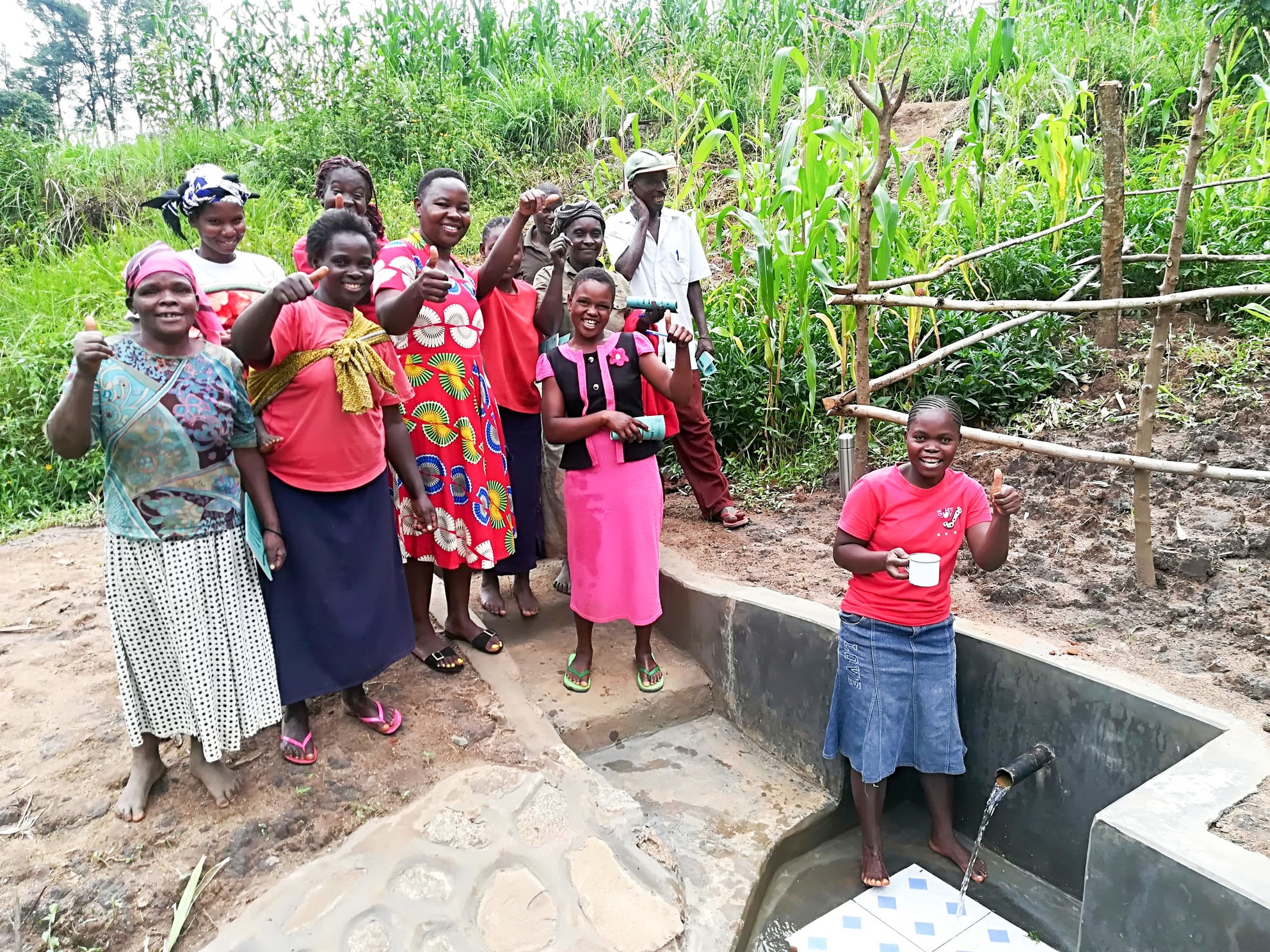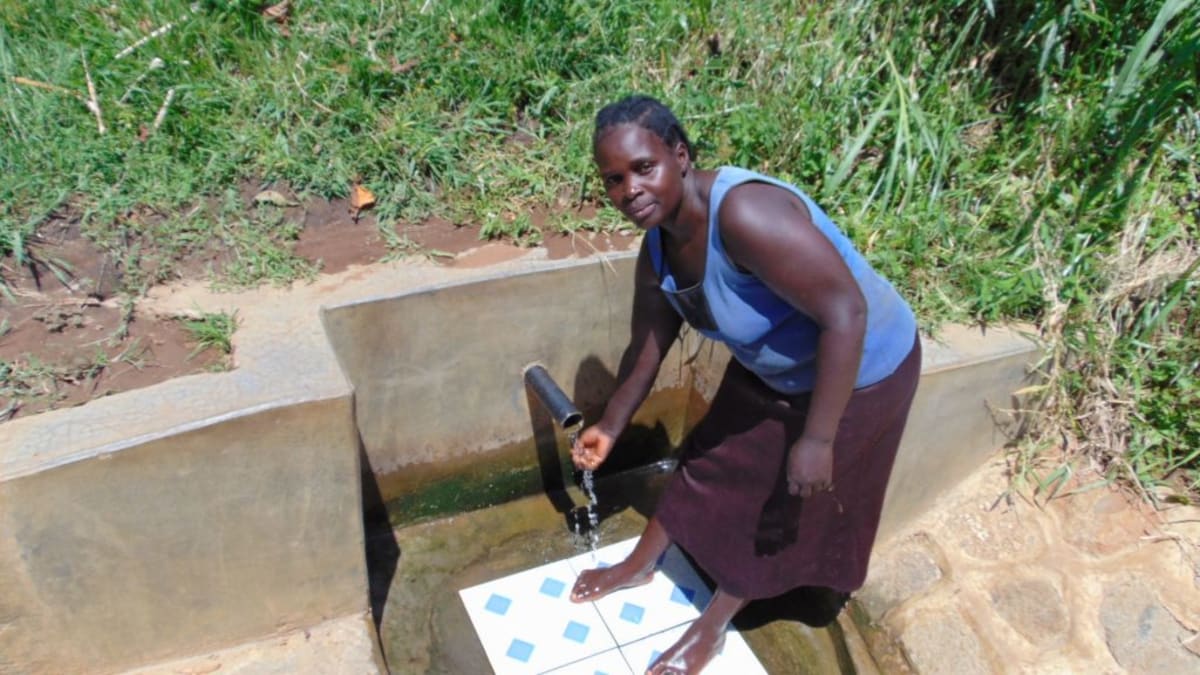About 90 people live in this village in Kakamega County. They have small farms to grow maize, groundnuts, beans and sugarcane. Some people have ventured into large scale farming of sugarcane for the local sugar industry. Cows are kept for milk. Some villagers engage in small businesses at their local trading center.
Water
Mwituwa Community relies on Nanjira Spring to get water for cooking, cleaning, and watering gardens. A small pipe has been pushed into the area where the water trickles out, under which they can hold their containers until full. It takes a while to fill a large container, and the water is contaminated by feces, farming chemicals, and other waste - all of which are washed down a steep slope when it rains.
Knowing how filthy this water is, many mothers travel quite a long distance to find clean water. Since Nanjira Spring has a great output and flows all year, it is a great candidate for protection! This will save these women the hours wasted traveling to other communities for clean water.
Sanitation
The situation here is not as bad as some other places. More than half of households have some sort of sanitation facilities. Some are better constructed than others, but they're there. Other than latrines, there are dish racks, clotheslines, and even a couple of hand-washing stations.
It's not that these facilities aren't there, but they are not maintained or cleaned on a regular basis. However, Grace Olei admits that there's still a long way to go.
"Our people need much training on sanitation and hygiene to enable them to take good care of their families especially the children to avoid falling sick," she said.
Here’s what we’re going to do about it:
Training
Community members will attend hygiene and sanitation training for at least two days. This training will ensure participants have the knowledge they need about healthy practices and their importance. The facilitator plans to use PHAST (Participatory Hygiene and Sanitation Transformation), CLTS (Community-Led Total Sanitation), ABCD (Asset-Based Community Development), group discussions, handouts, and demonstrations at the spring. One of the most important topics we plan to cover is the handling, storage, and treatment of water. Having a clean water source will be extremely helpful, but it is useless if water gets contaminated by the time it’s consumed. Hand-washing will also be a big topic.
Training will also result in the formation of a committee that will oversee operations and maintenance at the spring. They will enforce proper behavior around the spring and delegate tasks that will help preserve the site, such as building a fence and digging proper drainage. The fence will keep out destructive animals, and the drainage will keep the area’s mosquito population at a minimum.
Sanitation Platforms
On the final day of training, participants will select five families that should benefit from new latrine floors.
Training will also inform the community and selected families on what they need to contribute to make this project a success. They must mobilize locally available materials, such as bricks, clean sand, hardcore, and ballast. The five families chosen for sanitation platforms must prepare by sinking a pit for the sanitation platforms to be placed over. All community members must work together to make sure that accommodations and food are always provided for the work teams.
Spring Protection
Protecting the spring will ensure that the water is safe, adequate and secure. Construction will keep surface runoff and other contaminants out of the water. With the community’s high involvement in the process, there should be a good sense of responsibility and ownership for the new clean water source.
Fetching water is predominantly a female role, done by both women and young girls. Protecting the spring and offering training and support will therefore help empower the female members of the community by giving them more time and efforts to engage and invest in income-generating activities.
This project is a part of our shared program with Western Water And Sanitation Forum (WEWASAFO). Our team is pleased to provide the reports for this project (formatted and edited for readability) thanks to the hard work of our friends in Kenya.

 Protected Spring
Protected Spring
 Rehabilitation Project
Rehabilitation Project









































